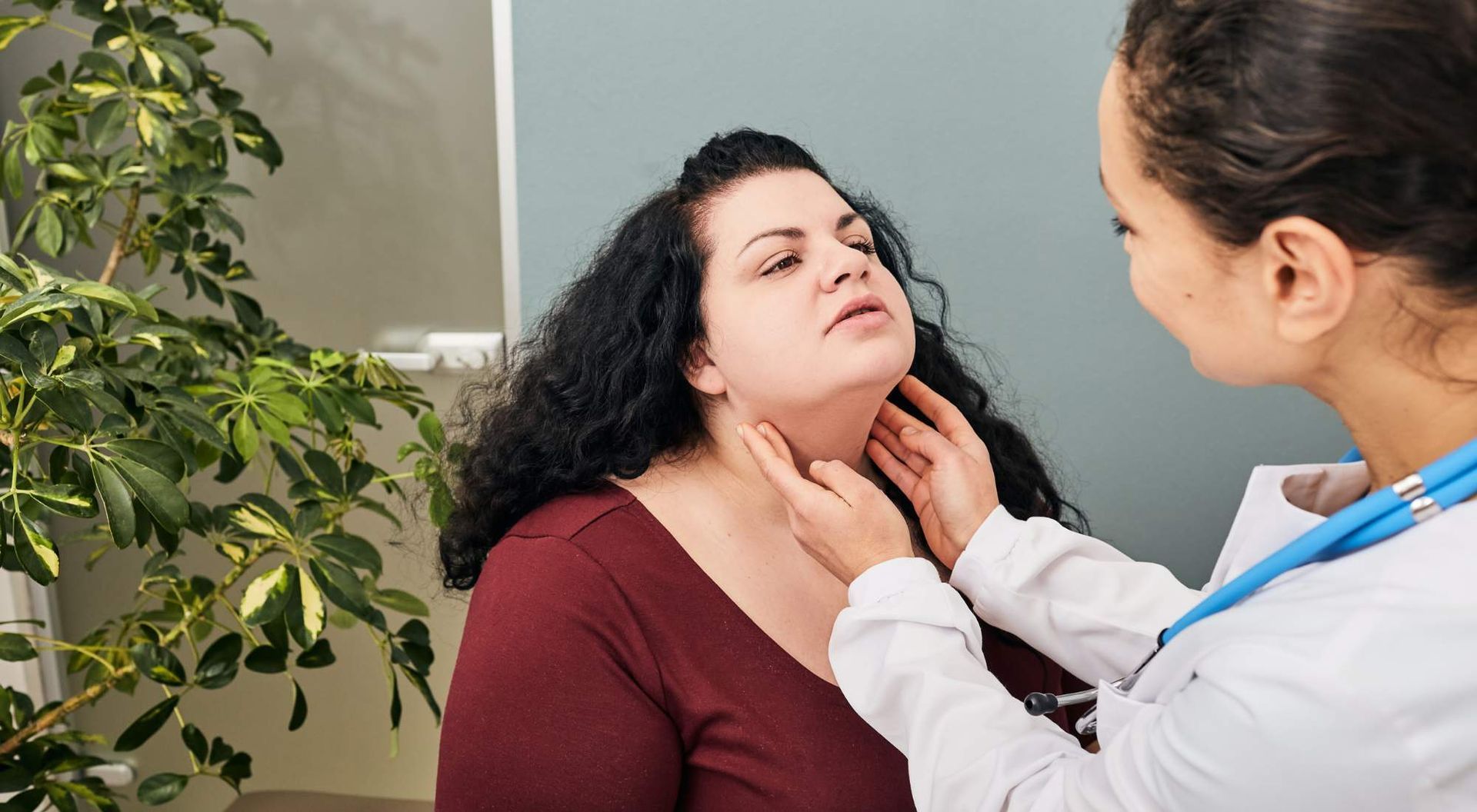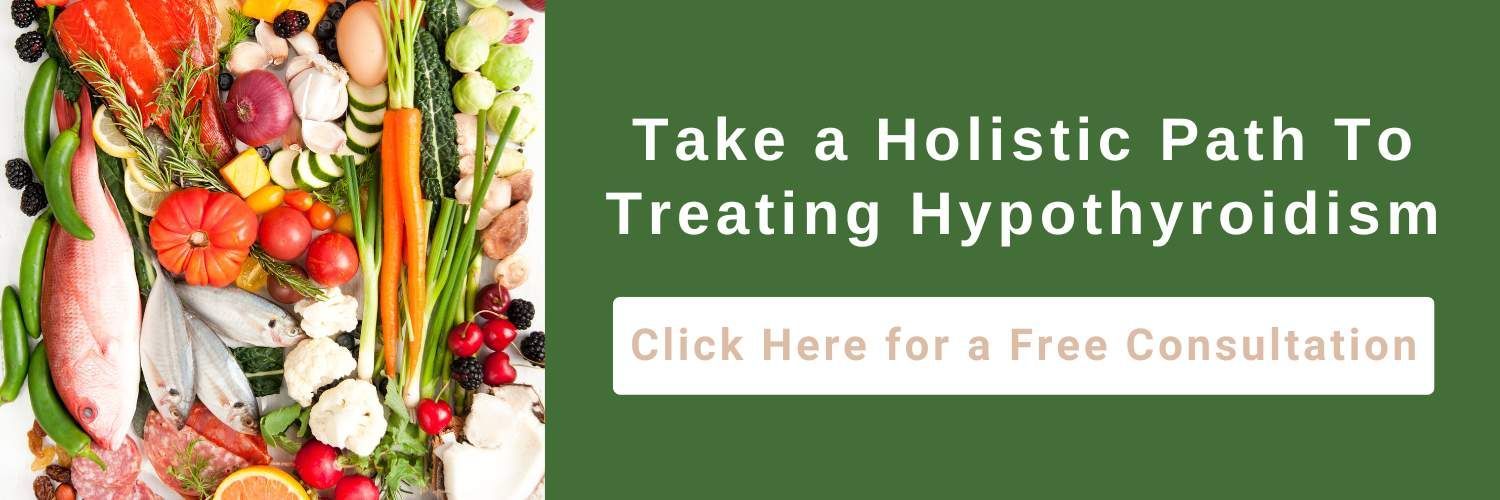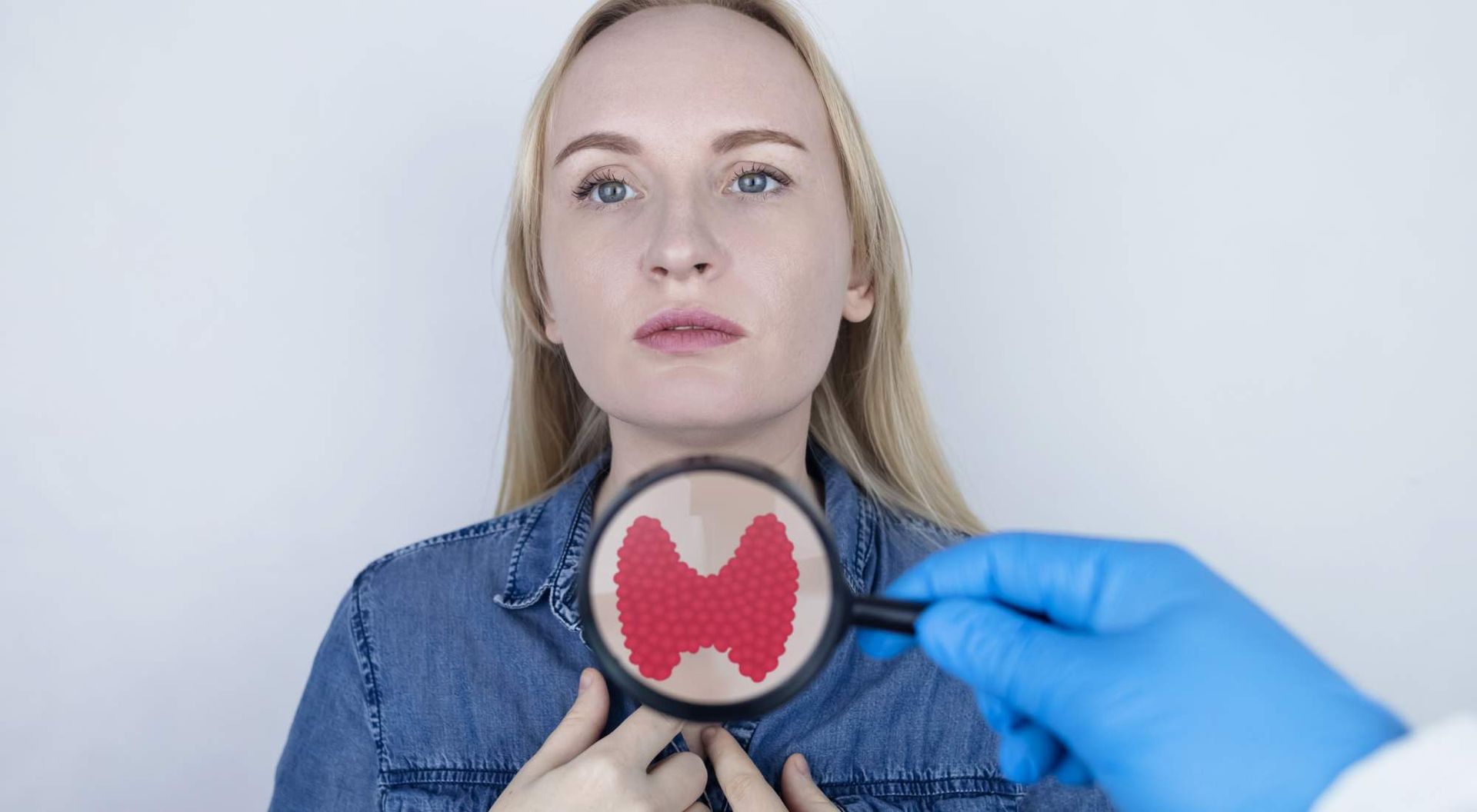A Cure for Hypothyroidism: Take the Natural Approach To Improving Your Health
"The content below is not intended to be a substitute for professional medical advice, diagnosis, or treatment. Always seek the advice of your physician or other qualified health provider with any questions you may have regarding a medical condition."
If you have hypothyroidism, you know from experience that it is a life-altering condition. Its symptoms and effects cannot go unchecked without significant detriment to your health.
In the interest of avoiding such problems, it can be tempting to turn to prescription drugs, which often have the reputation of providing a quick fix. But prescription drugs cannot address the primary cause of hypothyroidism, and thus they cannot cure the condition.
If you knew a way to avoid synthetic, temporary band-aids, you’d likely take it — even if it took a little work. Following a holistic approach to improving hypothyroidism takes into account not only the fact of an underactive thyroid but the possibilities of what might be causing the thyroid to be underactive.
Here we will introduce you to a different and effective way to address hypothyroidism that will allow you to experience more satisfying results.
Table of Contents
What Causes Hypothyroidism?
If you have hypothyroidism, your thyroid gland does not produce enough of the hormones necessary for regulating metabolism, growth, and other important body functions. Prescription drugs can supply the body with needed hormones, but they cannot make the thyroid produce them on its own as it should.
In most cases, the underlying cause of an underactive thyroid is Hashimoto’s thyroiditis, an autoimmune disease that targets the thyroid.
Other known causes include:
- Poor nutrition – specifically a diet low in iodine, vitamin D, selenium, and zinc
- Chronic stress
- Accumulation of environmental toxins
- Dietary sensitivities that lead to leaky gut, inflammation, and an increase in thyroid antibodies
- Some medicines, such as lithium
- Pituitary gland problems
Regardless of the cause, a person with hypothyroidism may suffer any of the following symptoms, resulting from the thyroid’s inability to produce a sufficient amount of the thyroid hormone:
- Dry skin and hair
- Brittle nails
- Fatigue
- Constipation
- Weight gain
- Puffy face
- Forgetfulness and depression
- Cold intolerance
- Menstrual disorders and infertility
- Arthritis
- Muscle aches
Symptoms may develop gradually, sometimes so slowly that the patient is unaware there is a medical problem. Because many of the symptoms are the same ones involved with depression, they may be mistakenly attributed to that.
Can Hypothyroidism Be Cured?
The treatment of hypothyroidism depends on its cause, which can be determined through a series of tests and assessments. Doctors usually recommend that patients take levothyroxine, a hormone replacement drug, to treat hypothyroidism.
But the condition has been shown to be effectively addressed through a holistic approach, as long as the patient is diligent and disciplined and has the support of a natural health provider, like Dr. Sergi at HealthierU.
HealthierU can help you determine the specific cause(s) of your hypothyroidism and develop a detailed treatment plan to reverse its progression and allow you to live more free of symptoms.
Contact us for an initial consultation.
4 Ways To Alleviate Symptoms and Cure Hypothyroidism Naturally
#1: Dietary Changes
A heart-healthy,
low-sugar, whole-food diet suitable for the general population could be beneficial for patients with hypothyroidism. There are some caveats, however, that might not be obvious to the average health-conscious individual.
Foods To Avoid
- Foods that can trigger an autoimmune reaction and thus further hamper thyroid function, including:
- Dairy
- Grains with gluten
- Nightshade vegetables
- Vegetable oils allow free radicals to circulate in the body and cause inflammation.
- Sugar or alternative sweeteners like sucralose, aspartame, and sugar alcohols (erythritol, xylitol, mannitol, sorbitol).
- Processed foods contain a lot of sodium leading to an increase in blood pressure and are exposed to chemicals that adversely affect thyroid hormone metabolism.
Foods To Eat
- Proteins such as beef, poultry, pork, eggs, and seafood help support thyroid function.
- Non-dairy fermented foods support digestion and thyroid function.
- Non-nightshade vegetables like kale and Brussels sprouts.
- Garlic and turmeric have anti-inflammatory properties that help manage autoimmune conditions.
- Gelatin helps draw fluid into the intestine, improving gut motility and relieving constipation, a common symptom of hypothyroidism.
- Bone broth helps repair the digestive lining, reducing the severity of thyroid disease.
- Fruits like prunes, dates, and cranberries are great sources of iodine, which is essential for thyroid hormone production.
- Arrowroot starch is a natural immunity booster.
- Small amounts of honey, maple syrup, and monk fruit are sweeteners that are easiest on the gut and seem to not affect fertility.
#2: Supplements
Please note that supplementation is meant to supplement a balanced, healthy diet, not to stand alone in the treatment of any disease.
The effectiveness and appropriateness of each of the following supplements depend on the specific cause of hypothyroidism. Some are particularly
helpful if Hashimoto’s has caused it while others help to decrease the severity of symptoms.
Iodine
Thyroid disease can be caused by getting too much or not enough iodine. Iodine is required for thyroid hormone production, but in excess, it can be very dangerous, particularly if you have nodules on your thyroid.
Eating foods that naturally contain iodine will give you the necessary amount. Most multivitamins provide 150 mcg of iodine, which is plenty.
Probiotics
Probiotics improve
gut health and lessen the severity of the symptoms of hypothyroidism. They may even reverse leaky gut by supporting the proteins that serve as a barrier between your digestive tract and your blood.
Vitamin D
Besides being essential for good bone health, Vitamin D helps protect against autoimmune diseases, such as Hashimoto’s.
Studies have found low levels of Vitamin D in patients with hypothyroidism. It is unclear whether a Vitamin D deficiency leads to or is caused by the thyroid condition.
Selenium
The enzyme that converts T4 (thyroxine) to T3 (triiodothyronine) requires
selenium to do its job. Organic supplements are in the form of selenomethionine, which the body can more easily absorb than inorganic supplements.
Zinc
Zinc helps to regulate thyroid hormone levels by signaling the thyroid to increase production when levels are low.
Chasteberry
This
fruit from the chaste tree is an anti-inflammatory agent that may also help regulate female hormones and improve fertility.
Curcumin
The active component of turmeric,
curcumin, is an antioxidant that also has anti-inflammatory properties and can help prevent autoimmune diseases.
Glutathione
This
antioxidant may help reduce the oxidative stress that increases the severity of hypothyroidism.
#3: Lifestyle Changes
Stress plays a significant role in disrupting normal thyroid function so stress relief is a critical step toward regulating hormone levels and slowing down the progression of hypothyroidism.
A few ways you can relieve stress include:
- Getting the right amount of sleep
- Taking up a hobby to help balance your work life
- Meditation or yoga
- Cutting out blue light exposure from electronic devices, especially before bedtime
- Being outside, especially surrounded by nature
However you manage to relieve stress can improve your immune function through the nervous and endocrine systems.
#4: Peptide Therapy
Peptide therapy is becoming popular as a means to treat autoimmune disorders, Lyme disease, and inflammation — all of which may play critical roles in the development of a given person’s hypothyroidism.
Peptides are small chains of amino acids that make up proteins and are essential for protein synthesis. When the proteins in a cell are not properly synthesized, that cell has dysfunction.
The rationale behind peptide therapy is to reverse hypothyroidism by restoring normal function to cells through the supply of the necessary materials for protein synthesis.
A
study published in the Journal of Diabetes and Endocrinology Research found that peptide therapy improved the clinical manifestations of hypothyroidism in 78% of patients involved in the study and that this improvement persisted for 3-5 months following treatment.
Can Hypothyroidism Reverse Itself?
Hypothyroidism is not a temporary condition and does require some form of intervention. It is rare that hypothyroidism can reverse itself so if you’re experiencing symptoms, seek a medical professional as soon as possible.
It’s best not to leave hypothyroidism untreated for too long because it can lead to more severe health problems, such as:
- Goiters
- Heart problems
- Peripheral neuropathy
- Infertility or birth defects
- Myxedema coma
Although it’s rare that hypothyroidism will reverse itself, putting forth the effort to consume the right foods and supplements may offer you a more enjoyable life with minimized symptoms of the disease.
The possibility of reversal depends largely on what is causing the condition. If it is caused by an autoimmune disorder, which is normally the case, reversal is unlikely. If a nutrient deficiency is at fault, then there is potential for reversal.
In either case, eating the right foods and taking the right supplements, as well as exercising regularly, will improve your overall health and slow the progress of the condition.
Get the Holistic Help You Need To Cure Hypothyroidism Naturally with HealthierU in Brooklyn, NY
It is true that it’s not always possible to cure hypothyroidism. For an individual with Hashimoto’s, it is unlikely that the thyroid will begin to produce proper amounts of the hormone on its own, especially if it has atrophied.
But following a diet and supplement regimen with the components outlined above can allow you to live a more symptom-free life naturally.
At HealthierU, we can help you plan a regimen that is suited to your specific needs. Through testing and an assessment, we can determine which nutrient deficiencies are involved in your hypothyroidism symptoms.
Request a nutrition consultation today to get started developing a sustainable approach to hypothyroidism that involves minimal synthetic intervention. Dr. Sergi at HealthierU is ready to assist you as you seek a healthier way to find relief and achieve optimal organ function.






